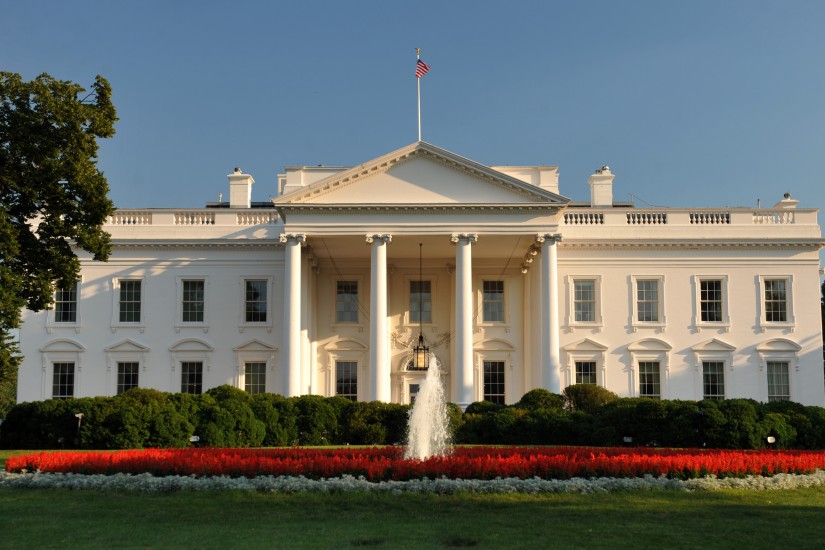These days, liberals are loving states’ rights. After President Trump decided to abandon the Paris climate accord, a dozen states formed the U.S. Climate Alliance, pledging to meet the agreement’s targets for emission reductions. California has concluded its own green technology agreement with China, while Hawaii has filed suits against the Trump administration’s travel ban. Around the country, liberal state governments are increasingly acting outside of, and sometimes against, the national government.
Such tactics have long formed key elements of the political arsenal of the American right. White Southerners, for example, have long trumpeted “states’ rights.” Many modern conservatives champion the Tenth Amendment’s vague, expansive defense of the powers of state governments. During the Obama administration, conservative state officials consistently tied up the White House with lawsuits challenging the Affordable Care Act, environmental regulations and Medicaid expansion.
It goes without saying that tensions between Washington and state capitals did not begin with Trump’s inauguration. Endemic to the system of federalism enshrined in the Constitution, conflicts between states and the federal government have bubbled up repeatedly over the past two centuries and produced many of the severest crises in U.S. history. And while many view “states’ rights” as a bastion of conservatism, at various points, liberal reformers have also turned to the states as a way to circumvent federal authority or jump-start progressive social change.
During the first decades of the 20th century, progressives touted the states, in Justice Louis Brandeis’s famous words, as “the laboratories of democracy.” Workmen’s compensation, women’s suffrage, the progressive income tax and many other reforms spread from state-level experiments to national policy. In more recent years, state action led the way toward abortion rights, same-sex marriage and environmental regulation.
Nonetheless, for the most part, states have deployed their power in the federal system to resist reform. Some of the most shameful chapters in U.S. history have been written under the banner of “states’ rights”: slavery and racial segregation, as well as laws forbidding Asian immigrants to own land, Italian immigrants to work as doctors and lawyers, and people to marry whom they chose. By manipulating benefit levels and eligibility rules, states long undermined federal efforts to construct a social safety net and guarantee voting rights for all Americans. And in their ceaseless quests to lure employers with subsidies, pollution abatements and other bribes, state governments cost taxpayers billions (and by encouraging footloose employers to seek the best deal, end up losing many to foreign countries).
Yet despite the United States’ federal structure and long-standing suspicion of concentrated power, the 20th century witnessed the vast expansion and unchallenged supremacy of the national government.
Washington provided Americans with subsidized home mortgages and easy terms on student loans. The feds financed a system of interstate highways (opening previously isolated areas to travel and commerce), established a system of environmental protection, waged a War on Poverty and provided security for the elderly. Actions by the national government ended the legal segregation of the races, abolished the odious quota system that governed immigration policy between the 1920s and 1960s, invested billions in education and established agencies to support research in the arts, humanities, medicine and science.
As that list suggests, the substantial accomplishments of 20th-century American liberalism rested largely on the supremacy of national power in the federal system, which allowed the national government to beat back challenges and obstruction from state and local authorities. The growth of federal power delivered such far-reaching accomplishments in part because the national government possesses powers and resources unavailable to the states: extensive taxing and borrowing capacities, a military, the public domain and the authority to regulate interstate commerce. But it also reflected the marriage of nationalism and social justice that had defined American liberalism since the era of Theodore Roosevelt — the combination of an activist, professional administrative state with a reform agenda.
In the past two decades, that centralizing tendency has dissipated. Measures to ensure the autonomy of regions, minority groups and local jurisdictions have cropped up around the world. The United States has experienced similar centrifugal energy in both ideological directions: California’s leadership on auto emissions, the introduction of same-sex marriage in Massachusetts, New York’s college tuition benefits, marijuana legalization in Colorado and Washington in defiance of federal law. Some conservative states, by contrast, have undermined abortion rights by imposing onerous restrictions on providers and obstructed access to the polls through voter ID regulations. Others have challenged federal authority over public lands to gut environmental protections.
For good or ill, the great legislative landmarks of the post-World War II era — civil rights and voting rights, federal aid to education and No Child Left Behind, the Affordable Care Act, the war on drugs, interstate highways and Medicare — enhanced the influence of the national government. California may negotiate deals with the Chinese and contemplate its own health insurance system, but even the nation’s largest state lacks the authority (and probably the resources) to advance reform along such ambitious lines.
Now, when liberals increasingly champion the autonomy and authority of the states and conservatives find themselves defending federal power, both sides might well reconsider their newfound positions. Liberals in particular should think twice before endorsing the idea of states’ rights. Co-opting the tactics of the opposition may seem like a great idea for protecting liberal values in the Trump era, but it could unwittingly hand conservatives a larger, more enduring victory.
